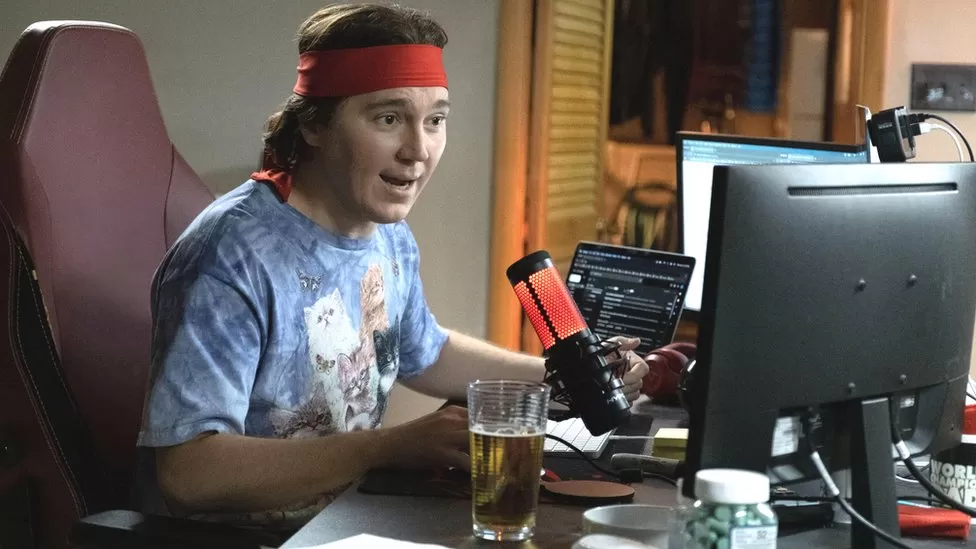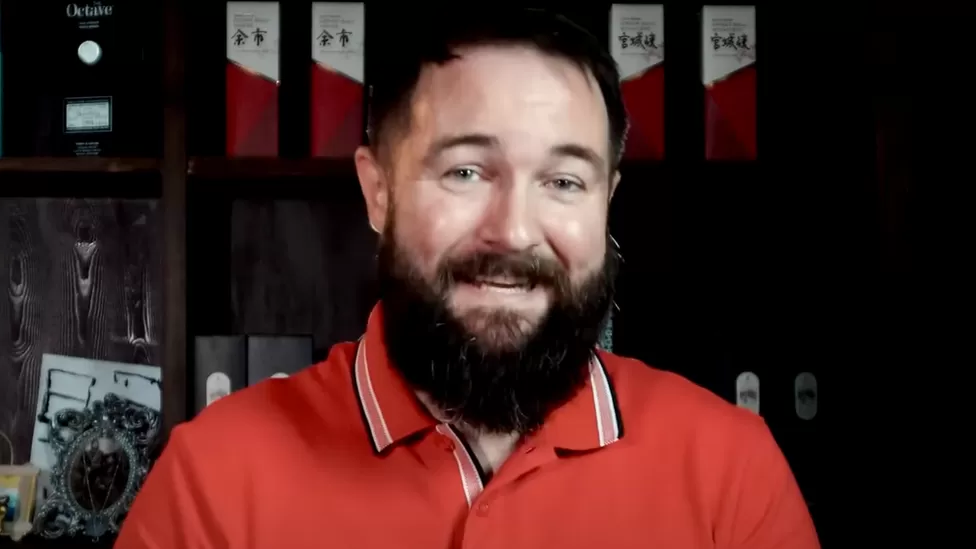Peter Roscoe has been buying and selling in the money world for 18 years.
Originally from Teesside, Peter Roscoe began his career in finance. However, for the last eight years, he’s been mostly focused on running a shooting range in Bulgaria, with trading as a side job.
Mr. Roscoe shares his trading experiences on a YouTube channel, where he talks about both his successful trades and the ones that didn’t go so well.
Recently, he’s noticed the increasing popularity of online trading apps. These apps provide new financial tools to regular people, like the ability to short sell.
Shorting a stock is quite different from regular trading. It involves borrowing a stock and selling it immediately. The goal is for its value to drop. When it does, you buy it back at a lower price and keep the difference.
Business Daily: The reality of short selling
Short selling has defenders who argue it’s important for the markets. They say it helps discover the real value of something and sometimes exposes dishonest behavior.
However, it’s a very risky way of trading. Until recently, only experts did it. But now, regular people can do it quickly because of online trading platforms.
Mr. Roscoe doesn’t necessarily recommend it. He gets messages all the time from people wanting to try shorting in day trading. He tells them, “If you have a job, don’t do it.”
He also says, “Unless you can spend four to five hours every day, Monday to Friday, watching the market for six months, you won’t succeed. And even then, there’s still a good chance you’ll fail.”
Despite these warnings, many still jump into short selling.

Dan Moczulski, who oversees eToro in the UK, says that shorting on their platform has skyrocketed in the last three years. He believes the Covid pandemic played a big role. With many people working from home, they started exploring different ways to make money.
He also thinks that attitudes towards money have shifted in the UK since the pandemic. Before, people didn’t really talk about their finances, maybe just house prices at a dinner party. Now, people are very open about sharing their own stock portfolio, including both their successes and losses. This is something that wasn’t common five years ago.
On social media, you can now find well-known short sellers and regular folks who trade, loudly talking about which stocks they believe are going to drop.

A special type of trader is getting more attention now. They’re called activist short sellers. These traders don’t just bet that a company’s stock will go down; they also publish detailed reports with bold headlines explaining why.
One of the most well-known of these traders is Carson Block from Muddy Waters. Often, firms like his will accuse companies of being outright dishonest, believing that their stock will drop when they reveal their concerns.
Mr. Block explains, “What we do is fill a gap in the market. We say, ‘Hey, this management has been tricking or misleading you investors.’ We reveal what’s really happening. This is why we’re betting against them. So, as activist short sellers, we bring clarity to the market.
- Why a ‘hologram revolution’ could be on the way
- The incredible power of blue LEDs
- Can German engineering solve the challenges of fusion?
- US China rivalry spurs investment in space tech
- How long until a robot is doing your dishes?
Activist short sellers create strong opinions. Some say they unfairly talk down companies and mess up the market.
Carson Block, one of them, explains, “When we publish and a stock drops a lot, we’re not celebrating. If it drops a lot, I think ‘they’re going to come after me, this isn’t over’. So, there’s not much joy on good days.”
Even for activist investors with more support, it’s a stressful way to earn money.
“It’s a job that wears out most of its practitioners in a few years. I’ve been at it for 13 years, and it’s definitely taking a toll on me,” says Mr. Block.

Peter Roscoe agrees and emphasizes that making mistakes is common in short selling.
Dan Moczulski from eToro explains that they have safeguards for inexperienced short sellers on their platform. However, he emphasizes that high risk is a key part of this type of trading.
On E-Toro, shorting involves using something called a CFD (contract for difference). Users must take a suitability test as part of this process.
If a trade results in losses of over 50% of the capital in an account, E-Toro will start closing the position. Additionally, with CFDs, a customer can never owe the broker more than their initial deposit.
Mr. Moczulski points out, “These things distinguish retail shorting from institutional shorting, which, as you mentioned, has unlimited risk.”
Investors who trade with their own money and don’t have a background in banks or investment firms are referred to as retail investors. Sometimes, they are labeled as “Dumb Money,” although this term can be derogatory.
There’s now a movie of the same name that follows the GameStop shorting saga, and how many online amateurs got swept up in trading its stock, with many losing money.
Even though Mr. Roscoe is a seasoned trader, short selling makes up only 5% of his trading activities. However, when he does succeed, he celebrates his wins.
He has a set of rules, saying, “If I make $1,000 from a single short trade, we have to go out the next day for a nice family steak dinner. If I make 5k, I’ll treat myself to a $1,000 bottle of special whiskey.
SOURCE:BBC

